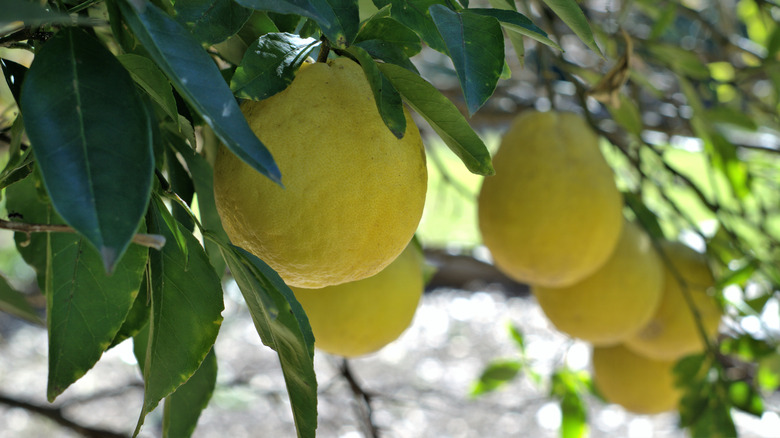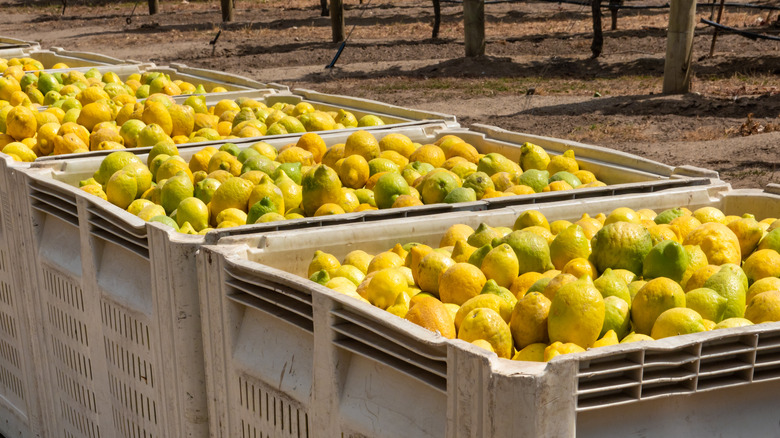Eureka Lemons Vs. Lisbon Lemons: What's The Difference?
When life gives you lemons — eat them! Lemons get a bad rap in cultural lingo, ranging from "lemon laws" for dysfunctional vehicles to lemons representing unwanted life circumstances. But in reality, fresh, zesty lemons from Mother Nature are healthy, versatile, and downright delicious. They make an edible presence in countless recipes, sauces, beverages, and desserts, while also harboring valuable pharmaceutical and cosmetic properties, according to a 2020 article from the journal Plants, published by the MDPI.
Lemons come in dozens of varieties across the globe, according to a list of 30 different lemon types identified by PlantSnap. As of 2020, lemon farming claims almost 54,000 acres in the United States, with two single varieties dominating the bulk of production, per the United States Department of Agriculture. Eureka and Lisbon, like all true varieties, fall under the Citrus limon species, and they're by far the most prevalent for everyday use.
So, what's the difference between these two primary lemon types, and why choose one over the other for citrus-based recipes? Sometimes, the choice is limited by geography, but here's a look at some distinguishing features of Eureka and Lisbon lemons.
America's lemons: Lisbon vs. Eureka
Ancestral lemon roots dig deep — in global soil. It's generally accepted that Lisbon lemons came from Portugal, while Eurekas made their way from Italy, where cultivation began in 1858, according to Specialty Produce. Eurekas remain the most produced lemon variety in California.
Eurekas carry a nickname of "four-seasons lemons," and this comes from the thick, textured outer peels surviving extended road trips to supermarkets across the country. The evergreen trees feature open branches with fewer thorns than Lisbons. Eureka lemons also thrive in the open air but are more sensitive to frost, per Garden Guides.
On the other hand, lemon lovers embrace Lisbons for the fewer (or nonexistent) seeds. You'll recognize them in supermarkets by the smoother skin and pronounced protruding teat. Farmers applaud the durability of Lisbon trees, according to the University of California Riverside and College of Natural and Agricultural Sciences. They tend to be large, thorny, and expansive, with fruits tucked under cool canopied shade. This makes them more prolific than Eurekas due to wind, heat, and frost resistance.
Despite the differences, Eureka and Lisbon lemons have a lot in common when it comes to nutrition. Nature endowed them with more than twice the daily need for vitamin C, per WebMD. Lemons also help boost immunity and reduce risks for heart disease, inflammation, and anemia. Both types prosper outdoors in USDA growing zones 8 to 11, producing zingy fruits all year, peaking in late winter to early spring, notes Garden Guides.

